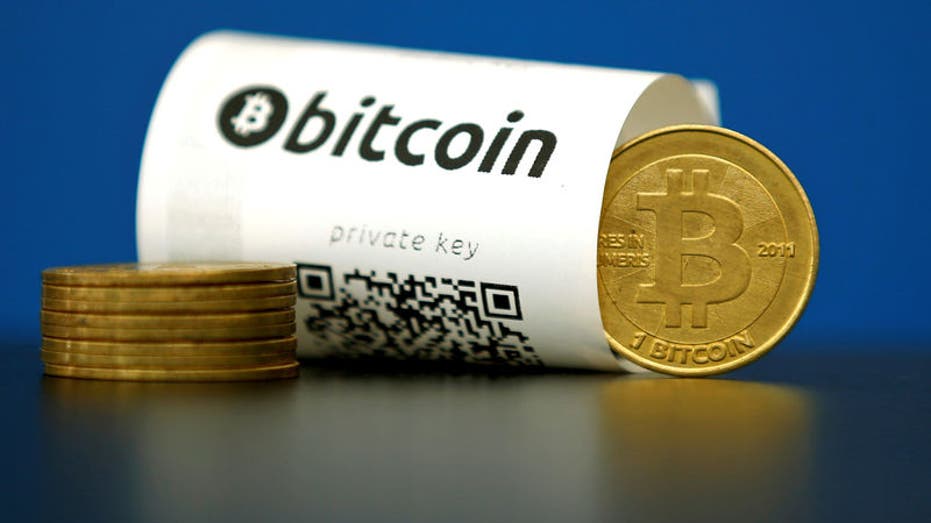As Bitcoin price surged, it fueled rise in cyberattacks, researchers say
Bitcoin's rapid price rise is a driving force behind a rise in cybercrime, according to new research
Microstrategy CEO loads up on Bitcoin amid sharp decline
Michael Saylor and Defiance ETF CIO Sylvia Jablonski discuss the crypto space on 'Making Money with Charles Payne'
The rapid rise in the price of Bitcoin is a driving force behind a rise in cybercrime, according to new research.
As the price of Bitcoin surged almost 400% between October 2020 and May 2021, the number of cyberattacks rose 192%, according to Barracuda Networks, which offers products and services that protect against malicious software attacks.
Cryptocurrency has long been a favorite for cybercriminals. And Bitcoin historically is the go-to currency.
Colonial Pipeline, which operates a critical pipeline for refined oil products, paid ransomware extortionists roughly 75 Bitcoin, or about $4.4 million at the time of the transaction, to recover stolen data – though the majority of that ransom was later recovered by the Justice Department.

The rapid rise in the price of Bitcoin is a driving force behind a rise in cybercrime, according to new research.
MUSK GIVES DOGECOIN PRICE BOOST WITH LATEST GODFATHER-INSPIRED TWEET
And a major meat supplier, JBS, said that it paid $11 million in Bitcoin to hackers as a result of a ransomware attack.
The rise in cyberattacks cited by Barracuda research involved fraudulent email or "impersonation," which has always been an effective tool for hackers.
"Instead of impersonating regular banks, hackers are now impersonating digital wallets and crypto-related apps with fake security alerts to steal login credentials," Barracuda said in a statement.
"Cryptocurrency seems to be a perfect currency for criminal activity — it’s unregulated, difficult to trace, and increasing in value. All of this provided criminals with additional motivation to attack," according to Barracuda.
Another trend playing into criminals’ hands is work from home.
"More data is now created and stored in collaboration apps, and more information is exposed, creating more targets and potential value for criminals," Barracuda said.
And these days you don’t need to be a computer genius to launch a ransomware attack. Ransomware-as-a-service – which allows you to essentially hire someone to carry out an attack for you — is a red-hot business on the dark web.
FEDS ACCELERATING CRYPTO WORLD CRACKDOWN
"In 2019 ransom demands ranged from a few thousand dollars to $2 million at the top end. By mid-2021 most demands were in the millions, with a significant number over $20 million," according to Barracuda.
But Bitcoin isn't the only game in town. Criminals are turning to other cryptocurrencies too as gangs are exposed through their use of Bitcoin, according to Digital Shadows. The most recent example of this being the seizure of $2.3 million in Bitcoin by the Justice Department from the Darkside ransomware group.
"Bitcoin has often been mislabelled as an anonymous digital currency, but the reality is very much the opposite," Digital Shadows said in a blog post.

Cryptocurrency has long been a favorite for cybercriminals. And Bitcoin historically is the go-to currency. (Reuters)
"Anonymity has never been a characteristic of the currency or the blockchain it’s built on," the post continues. "The currency’s public ledger records every single transaction broadcasted across the network, resulting in the ability to trace all coins from their originating source to their final destination."
For instance, the REvil ransomware group in 2020 declared they were switching payment operations away from Bitcoin and Ethereum in favor of Monero, Digital Shadows said.
GET FOX BUSINESS ON THE GO BY CLICKING HERE
"Given the increased crackdown of Bitcoin by police authorities, we should anticipate that cybercriminals will turn to other types of cryptocurrencies as they request for more ransomware payments," Barracuda's CEO, BJ Jenkins, told FOX Business.
"One example of such cryptocurrency is Monero, which is harder to trace with stronger privacy and anonymity by design. However, at this point, it’s still an obscure cryptocurrency compared to Bitcoin by trading volume and availability, so in the short term, it’s likely going to be a payment option instead of replacement for Bitcoin," Jenkins said.




















